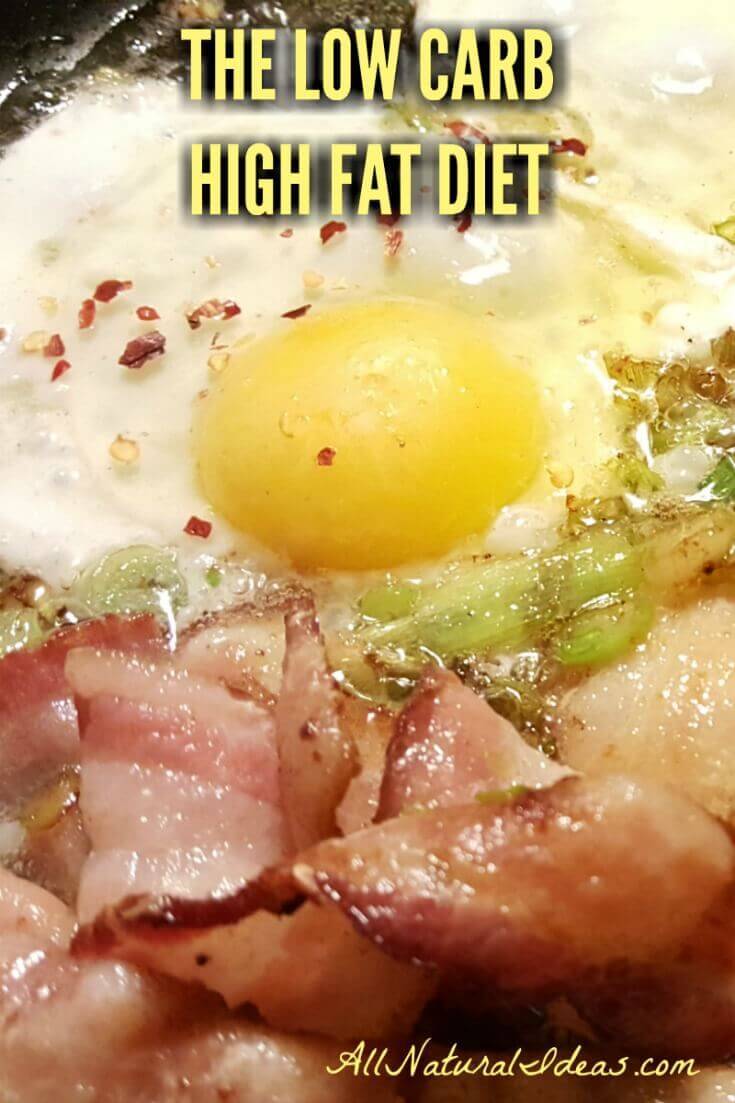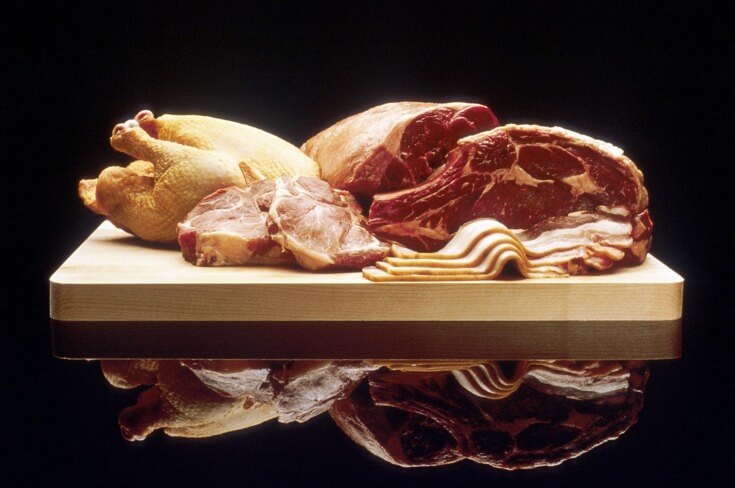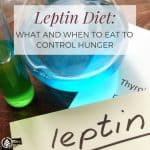Thinking about going on a low carb high fat diet but scared about potential side effects? This meal plan is usually a safe option for most people.

History of the high fat low carb diet
The Stone Age
Diets that are low in carbs and high in fat were most likely the original diet of our distant ancestors. Long before the agricultural revolution, humans subsisted on high-protein, high-fat diets. Only a smattering of wild berries and other fruits were thrown in, when in season. Although tribes living in tropical areas did have yearly access to delicious fruits.
Vegetables, on the other hand, were rarely eaten. These veggies also looked radically different and taste was not the same. And, there was very little diversity compared to today’s palatable rainbow assortment we enjoy today.
Our Stone Age ancestors rarely lived to a life span we enjoy in modern times. So, what’s the point of going on a low carb high fat diet?
The original low carb eaters had an average lifespan of around 30 years of age. But, the average lifespan expectancy back then can be misleading. Infant- and child-mortality can throw off true lifespan statistics. Obviously, have no medical, written records from the Stone Age. However, it’s very likely that many of the first people to ever follow a low carb high fat diet meal plan (obviously, not by choice) lived well into old age. And, they enjoyed a life free of the chronic diseases our society suffers from today.
The start of farming
The agricultural revolution, which started roughly 12,000 years ago, once in full operation, put an end to mankind’s reliance on a low carb high fat diet. But it’s not carbohydrates that were eaten during the advent of farming that are necessarily to blame for the epidemic in obesity, diabetes and other inflammatory-based chronic illnesses of today.
Many of the carbohydrates that have been introduced within the last approximately 100 years are prime culprits. This is especially true of refined carbs with white flour. Even most wheat flour is drastically different from the wheat cultivated thousands of years ago.
More recent years
Because of the relatively recently gained knowledge that dietary fat, including saturated fat, is not responsible for heart disease, as long as the source of fat is healthy, and that many sources of carbohydrates can cause inflammation, low carb high fat diets are, after a long slumber, once again popular with humans.
These low carb diets that are high in fat should not be considered radical. They should be regarded as a healthy diet plan. If 100% of carbohydrates in the diet are eliminated, then, yes, that would be considered radical and unsafe. But if you stick to a low carb high fat diet meal plan that allows for low-starch vegetables at every meal and a little bit of fruit every now and then, and perhaps even a small amount of low-starch grains for lunch, this will be more than sufficient for your carbohydrate intake.

Why do some people eat almost no carbs when following a low carb high fat diet meal plan?
Severely restricting carbs from the diet will cause a condition known as ketosis. Ketosis is when ketones are used for energy. Ketones are water-soluble molecules, produced by the liver from fatty acids during periods of low food intake, carbohydrate restrictive diets, as well as prolonged intense exercise. When carbs are greatly restricted, the liver is able to convert stored fat into fatty acids and ketones. The ketones fuel the brain, replacing glucose as the primary energy source.
People with certain medical conditions such as epilepsy or other seizure-related disorders may follow an eating plan that calls for very low carb recipes that are high in fat. Other people who follow this type of diet simply want to get leaner.
There are various low carb high fat diet meal plans that can be followed. To optimize the diet, a keto calculator should be used to determine the best daily food intake.
Low carb high fat diet side effects
Induction Flu
But some people who go on these high fat low carb diets soon experience side effects. One of the most common side effects of the low carb high fat diet meal plan is “induction flu.” These flu-like symptoms typically occur almost immediately after following a low-carb diet, as early as the second or third day.
Though the exact cause of induction flu is not known, some theories suggest flu-like symptoms are caused by the change in chemistry to provide in energy. True, this change in chemistry may seem radical, but if you’ve been eating lots of processed carbs, the sudden removal of them from the diet could also be your body’s way of saying, “I feel lousy. Feed me more of those yummy carbs.”
The downside to getting into a state of ketosis is that it usually requires, yes, a radical reduction in carbs, to no more than 20-25 grams per day. But if you can manage having, we’ll say it again, radical resolve during the two or three days you can expect to experience flu-like symptoms, should they emerge, then you’ll feel wonderful after the symptoms subside.
Other side effects
Other common side effects of a low carb high fat diet include headaches and cramps, especially in the lower extremities. Increasing your intake of water, salt, and magnesium may help prevent these side effects, or help ease them, should they occur.
For years, your body has relied on carbs to fuel the brain. If you suddenly stop consuming your primary source of fuel, your brain and body may have a difficult time adapting at first. It’s possible you may experience brain fog or feel lethargic shortly after going on a low carb meal plan.
One other low carb high fat diet side effect worth mentioning: bad breath. If this is true make sure you consume more water than usual as offensive breath may be caused, in part, by dehydration. Sometimes unusual breath is no more than that; it’s not per say, bad, just strange. If this is the case, then your body is in the state of ketosis and you are successfully burning up your stored body fat for energy!

High fat diet weight loss
From a cosmetic perspective, the number one benefit of a low carb high fat diet is weight loss. The term “high fat diet weight loss” may seem counterintuitive to some. But as we have seen throughout the years, high fat diet weight loss is a very real possibility. Much of this is due to the popularity of the Atkins Diet. For others not knowledgeable about Atkins, the concept of eating fat to lose weight may be confusing because of the common misconception that eating fat makes you fat.
But of all the three macronutrients (dietary fat, protein and carbohydrates) only fat does not cause a release of the hormone, insulin, from the pancreas. This means that dietary fat does not raise blood sugar levels.
Fats do not cause a rise in blood sugar. Therefore, they are well suited for use as the primary fuel source. Through the above-mentioned process of ketosis, the body’s fat cells will reduce in size. This physiological effect of a low carb high fat diet may result in weight loss.
High fat diet risks
Link to cardiovascular disease
Some people are afraid to eat a low carb diet because of the risks associated with a high fat diet. These risks include heart disease, heart attack, stroke, high cholesterol, high blood pressure and atherosclerosis. According to Johns Hopkins University (as well as many contemporary studies), low carb higher fat diets pose no adverse arterial health risks to obese people who are on a low carb high fat diet to lose weight.
Many other studies have debunked the long-held conclusion that dietary fat is a direct, causal factor for cardiovascular disease. But high fat foods usually are low in fiber, which are more commonly found in fruits and grains. As a result, constipation may be one high fat diet risk.
Vegetables
That’s why it’s important to make sure you’re getting enough green leafy vegetables in the diet. A whole cup of raw spinach only has 1 gram of carbs. One cup of cooked kale contains only 7 grams of carbs and 3 grams of fiber. One cup of cooked broccoli has 9 grams of fiber and 11 net grams of carbs.
As you can see, it’s possible to eat an adequate amount of healthy veggies on a low carb diet to avoid constipation.
Triglyceride levels
Another high fat diet risk is that fats, particularly those that come from animal sources can raise triglycerides. Triglycerides are the main component of fat in our bodies. And yes, it’s true that animal fats can raise triglycerides. But animal fats that cause triglycerides to rise are unhealthy sources.
Some examples of unhealthy sources of animal fats:
- factory-farmed, grain-fed meat,
- any animal flesh blackened on a barbecue,
- or that cooked at high temperatures.
Even non-animal fats can cause triglycerides to rise. The roasting process of seeds, nuts and their butters, as well as oils can cause inflammation and triglyceride levels to rise.

Conclusion
Unless you are diabetic, especially type 1, following a diet low in carbs and high in fat is generally safe. But, you need to be careful that you aren’t eating too much protein (which may stress the kidneys). For those with type 2 diabetes, eliminating all processed carbs and eating more healthy sources of dietary fat may completely reverse diabetes.
It’s best if you consult with your doctor, a nutritionist or other healthcare provider before beginning any new diet.





